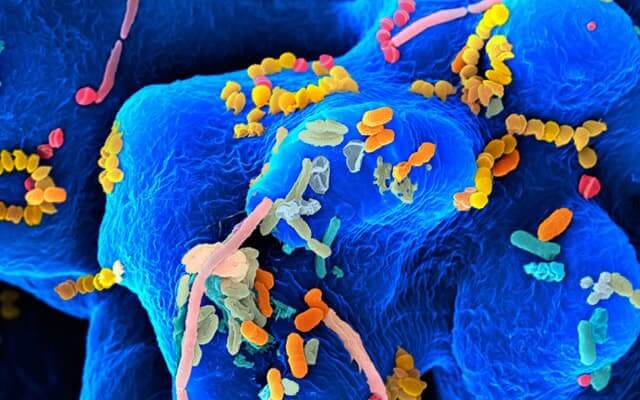The intriguing science of emotions suggests that happiness stems from increased wisdom, health, and well-being. Conversely, those who are lonelier are perceived as less wise, according to previous studies. Luckily, there are many ways to increase one’s well-being, and according to the latest research, the gut microbiome is the best place to start!
San Diego’s School of Medicine reports that gut microbial diversity affects many aspects of our lives including intelligence and emotions. Moreover, this relationship is a two-way street! In other words, feelings of depression or loneliness can alter the populations of microbes in the gut, resulting in an increase in harmful bacteria as well as a reduction in pathogen-fighting microbes.
Social Behavior and the Gut Flora
Brain synapses, hormonal changes, and immunological functions all have a role in regulating this multi-communication network. Because of this relationship, any change to the gut flora – the diverse collection of microbes living in the gut – can disrupt normal physiological behaviors. For example, several studies have linked gut bacteria to certain mental health illnesses such as schizophrenia and bipolar disorder.

Additionally, gut microbiota diversity is associated with a broader social network, according to a recent study published in Frontiers in Psychiatry linking the intestinal flora to social behavior. Researchers examined fecal samples from nearly 200 individuals who each filled out questionnaires gauging five different aspects of their lives: compassion, social engagement, social support, wisdom, and loneliness.
“We found that lower levels of loneliness and higher levels of wisdom, compassion, social support, and engagement were associated with greater phylogenetic richness and diversity of the gut microbiome,” says first author Tanya T. Nguyen, in a statement. Nguyen is an assistant professor of psychiatry at UC San Diego School of Medicine. These findings were regardless of the individual’s age.
Microbe Diversity and Mental Health
It’s not clear how exactly the diversity of microbes in the gut affects feelings of loneliness, compassion, and wisdom; nonetheless, a lower level of microbial diversity has been connected to a slew of health problems, like obesity, IBD, and chronic depression. Furthermore, having a more diversified gut flora may make a person less vulnerable to infection, which might improve the community’s tolerance and durability.
“It is possible that loneliness may result in decreased stability of the gut microbiome and, consequently, reduced resistance and resilience to stress-related disruptions, leading to downstream physiological effects, such as systemic inflammation,” say researchers. “Thus, lonely people may be more susceptible to developing different diseases.”
Social interaction, compassion, and wisdom, on the other hand, may safeguard against loneliness caused by gut flora. It is possible that healthy, diversified gut microbiota might mitigate the detrimental consequences of excessive stress by helping to build social strategies that enhance either intelligence or the feeling of loneliness. Although the theory has not been verified in people, animal research show gut microbes may alter social behavior and relationships.
“Loneliness may lead to changes in the gut microbiome or, reciprocally, alterations of the gut milieu may predispose an individual to become lonely,” says Dilip V. Jeste, Professor of Psychiatry and Neurosciences at UC San Diego School of Medicine and senior author of the paper. “We need to investigate much more thoroughly to better understand the phenomenon of the gut-brain axis.”
Find the full study in Frontiers in Psychiatry.
